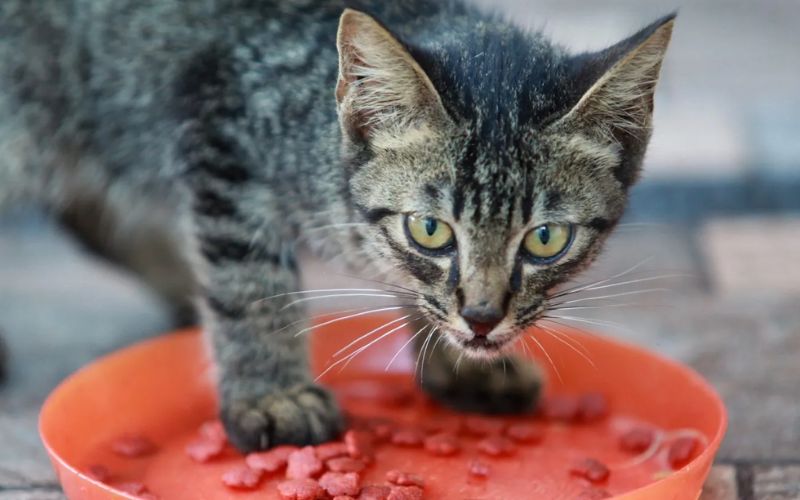Cats are interesting animals, and their antics frequently baffle and perplex humans. When given the opportunity, cats will often try to bury their food. It’s not completely normal, but there are good explanations for why people do it. This tutorial will help you understand why your cat is trying to hide her food and offer suggestions for a more peaceful mealtime.
Why Does My Cat Try To Bury Her Food
Instinctual Behavior: The Legacy of the Wild
Cats are descended from wild predators that buried their prey to protect it from cannibals and other scavengers. They’ve inherited this trait from their ancestors and it runs deep in their veins. Your cat may live in a comfortable house now, but she retains some of the feral instincts of her ancestors.
Scent and Survival: The Connection
A cat has an acute sense of smell. Burying food had two functions in the wild: it masked the smell from predators and preserved it for later use. Your cat may be safe from outside dangers in your home, but she still uses her sense of smell to get around.
Hiding from Predators: A Natural Instinct
It’s true that cats can be either predators or prey. As a means of protection against larger predators who might wish to share the meal, burying food was essential. Your cat’s survival instincts are clearly at work here.
Keeping Territory Clean: A Sign of Domination
Food burying can be a dominance display in households with many cats. Your cat may be indicating that she considers the area and its resources, including the food, to be her property by covering it. When there are numerous cats in a household, this behavior is more prevalent.
Stress and Anxiety: Uncovering the Triggers
When cats are feeling anxious or stressed, they may bury their food. This behavior can be prompted by changes in their environment, the introduction of new individuals or animals, or a break in their routine. The underlying causes must be addressed if your cat’s food burial is sudden or accompanied by other indicators of stress.
Dietary Preferences: When Cats Disapprove
Cats have been lauded for their refined taste for centuries. Your cat may try to hide the food you’ve given her by burying it if she doesn’t like it. You could try different foods to see if you can discover anything she likes better.
Overfeeding and Leftovers: Managing Portion Control
Cats have developed sophisticated mechanisms for controlling their own food intake, including the habit of hiding their leftovers underground. Serving sizes should be reasonable to prevent this behavior.
Behavioural Interventions: De-Stressing Your World
If your cat buries its food because of stress or worry, try making his or her living space more relaxing. To do this, you may need to provide a secure environment, limit your cat’s exposure to stress, and maintain a regular routine.
Getting the Right Food for Your Cat: Catering to His or Her Tastes
Discover which cat food your feline buddy prefers by reading up on the many brands available. Finding the correct food for your cat can help prevent them from hiding their meals out of disgust.
Veterinarian Checkup: Eliminate Potential Health Problems
Veterinarian attention should be sought if your cat’s food-burying activity is abrupt, intense, or accompanied by other worrying signs such as vomiting or diarrhea. It’s important to rule out any medical conditions that could be contributing to mealtime discomfort.
The Companionship of You and Your Cat Through Observation
You can improve your relationship with your cat if you take the time to learn about and accommodate its food-burying rituals. Spend some time observing her habits and learning what she likes so you can establish a feeding schedule that fits her natural needs and strengthens your bond with her.
Conclusion
For a healthy and joyful feeding routine, it’s important to understand why your cat wants to bury her food. This action originates from primal drives related to survival and interaction. You can make mealtimes calm and pleasant for you and your cat if you pay attention to what causes them and take steps to eliminate them.
